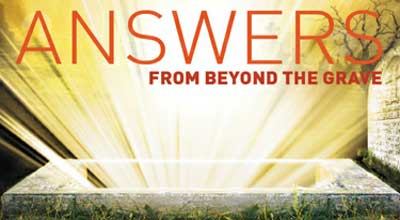Bible teacher Perry Stone tackles seven of the most common questions about heaven
For the living, the idea of dying may seem irrelevant at the moment. We all plan for the future and make every attempt to stretch the length of our days like a rubber band until suddenly, like the snap of broken rubber, life ceases and we lie limp in the place where our journey ended. Because death is a future and unknown experience, the thought of dying often breeds more questions than answers.
Christians wonder, Can we remember earthly events in heaven? Or they ponder, Will my loved ones know me in the same manner as I knew them in this life? There is also the question of remembering those who did not make heaven their eternal destiny. Will believers remember the unrighteous they knew on Earth after the believer is home with Christ, or will unbelievers’ earthly association with us be erased from our memories when we arrive at the heavenly city?
The questions are endless, but the Bible is replete with answers to our most frequently asked questions about life beyond the grave.
Will I have a body in heaven if I’m cremated? About once a week I receive an e-mail or letter from a Christian family asking a question about cremation. The process of cremation is when heat reduces the bodily remains of an individual to gasses and bone fragments. The remains given to a family in an urn are not ashes, as some suggest, but are actual fragments of bones.
The question is: From the biblical and Christian perspective, is it ever wrong to cremate a fellow believer?
First, the entire Bible is clear on how the patriarchs, the Hebrew people, and the New Testament believers buried their loved ones. Abraham, Isaac, Jacob, Sarah and Leah were all buried in the same cave (see Gen. 25:9; 49:30; 50:13). Joseph was embalmed in the traditional Egyptian method, and his body was laid in a golden coffin and placed in a special vault in Egypt (see Gen. 50:26).
At the time of the Exodus, Moses entered the vault and removed the golden coffin with Joseph’s bones, and they were transferred from Egypt to the Promised Land (see Ex. 13:19) and later buried by Joshua in the land of Joseph’s inheritance (see Josh. 24:32).
Those who completely oppose cremation point out the following. In Joshua 7, after Achan sinned by stealing the gold and the garments from Jericho, his sin was exposed, and the people stoned him and burned his body, leaving a pile of stones as a reminder of God’s anger being turned from Israel (see vv. 24-26).
There is no clear Scripture either promoting or discouraging cremation. This is actually a spiritual and moral issue with some, but it probably falls under the Scripture that teaches: “Work out your own salvation with fear and trembling” (Phil. 2:12, NKJV).
Consider the number of Christians who were unable to escape and have died in burning planes, homes or large buildings. Their departure from this life in a tragic fire will not impact their future with Christ because their souls and spirits are already with the Lord.
Will I know my loved ones? Someone asked, “If it’s true that we will be known at the resurrection as we were before we died, then why didn’t Mary recognize Christ after He was raised from the dead?” Christ had been dead only three days, so how could Mary, who was with Him throughout His ministry, not recognize Him?
Remember, she thought He was dead, and the corpse was missing; so she wasn’t expecting this man to be Christ (see John 20:11-17). She also may not have known Him because of a change in His appearance. The shock of the crucifixion and the great mental pressure He endured may have changed certain features. After Jesus’ resurrection, His hair was white (see Rev. 1:13-14). If a change in His physical appearance occurred within three days, then Mary wouldn’t have immediately recognized Him.
It was also prior to the sun completely rising when she saw Him, which is the simplest explanation—it was still dark. Any of these factors could be why Mary didn’t recognize Him until she heard His voice.
Stephen, however, immediately recognized the risen Christ. When he was being stoned, Stephen saw Jesus standing in heaven, and said: “Look! I see … the Son of Man [Jesus] standing at the right hand of God!” (Acts 7:55–56). Stephen knew Christ on Earth and instantly recognized Him from His heavenly throne. Also, when Christ suddenly appeared after His resurrection to His disciples behind locked doors, they knew it was Him.
The apostle Paul says this: “For now we see … dimly, but then face to face. … Then I shall know just as I also am known” (1 Cor. 13:12). When he said “then I shall know,” he was alluding to the time when perfection comes and we are with Christ. In heaven I will recognize Paul, Moses and all my family members. Even at the Transfiguration, Peter knew—without being told—that the two men beside Jesus were Moses and Elijah (see Matt. 17:1–4).











































